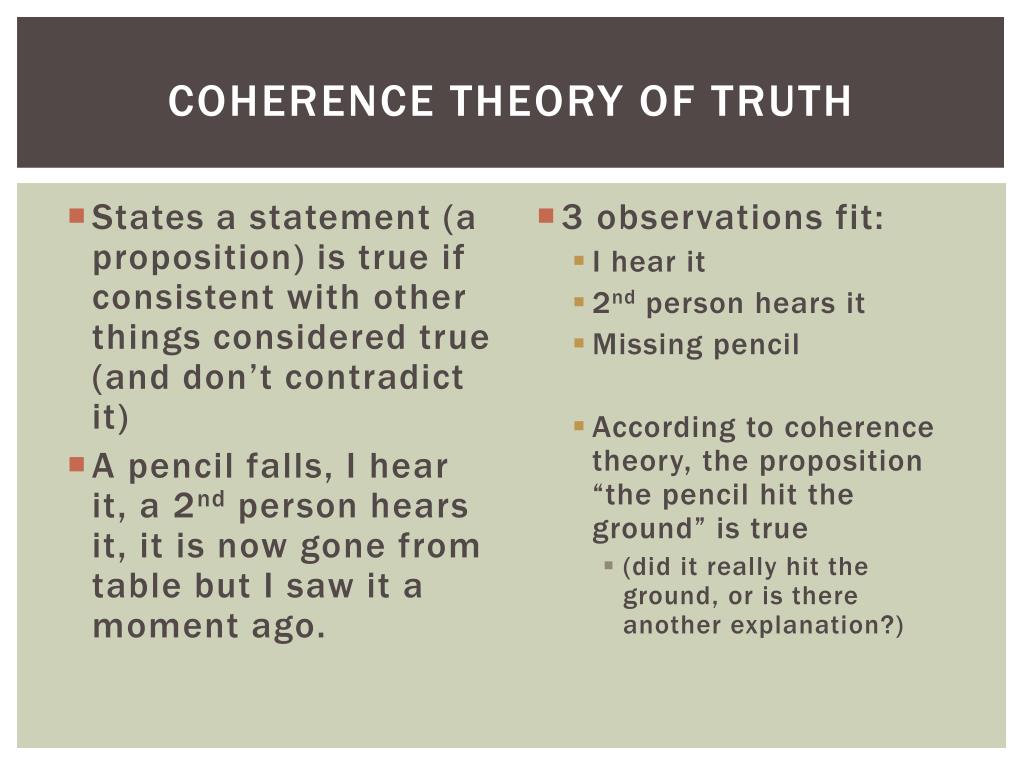
Once we grant individual credibility to some external world beliefs, we have abandoned a central motivation for coherentism and fallen into what BonJour called "weak foundationalism".Įven if we accept some degree of individual credibility, as both Lewis and Coady do, two problems remain. This fact creates a problem for BonJour, who sought to justify external-world beliefs solely on the basis of coherence, without the need for individual credibility. As Olsson shows, however, this intuitive result holds only as long as each witness has at least some degree of individual credibility (meaning that receiving the testimony of one witness raises the probability of what the witness asserts). Similarly, the coherence of a set of independently acquired beliefs is thought to provide justification for thinking that those beliefs are by and large true. Intuitively, the witnesses' agreement constitutes strong evidence that the story to which they attest is the truth. He takes as a starting point an illustration employed by both Lewis and BonJour, in which witnesses of doubtful reliability independently agree on a number of specific details about a crime.

Coady to use coherence to justify our ordinary beliefs derived, respectively, from memory, sense perception, and testimony. In the first part of the book, Olsson confronts attempts by C.I.


Ultimately, he finds that a high degree of coherence cannot secure a high probability of truth, nor does greater coherence in general imply a greater likelihood of truth, even ceteris paribus. Olsson focuses on attempts to show that coherence is "truth-conducive", meaning that the coherence of a belief system contributes to its probability of being accurate. Erik Olsson's Against Coherence poses a powerful challenge to coherence theories of justification, from the standpoint of probabilistic epistemology.


 0 kommentar(er)
0 kommentar(er)
